“Pssssstt ... buddy ... wanna buy some magic dust?”
There’s a common misconception among new anglers that time-tested virtues like awareness, experience and knowledge are less important to our overall success than the various & sundry items that we can order on Amazon or purchase from our local fly shop.
What do I mean? Well, it seems as if an awful lot of beginning anglers have convinced themselves that the new rod they’re about to buy, or the fly line, or the waders, or that specific fly pattern, or the sunglasses, or the brand new reel, is the key to achieving fly fishing nirvana with a minimum of fuss.
Which is where all that ‘magic dust’ comes into the picture. We have apparently brainwashed ourselves into believing that if we’re just willing to pull out our credit cards and sprinkle a little special hoodoo powder on our fishing - “Dude, check out this killer new rod. I’m going to wail on those fish now!” - then our new gear will more than make up for our lack of expertise.
I see it all the time. Folks think that they’ll cast better with that incredible new fly rod. They’ll hook more fish with the hot new pattern. They’ll land more monsters with the killer new reel.
The crazy thing is that there’s just enough truth there to make the whole “magic dust” mantra viable. It’s a fact that some rods do cast better than others. Some reels have a more effective drag system than others. Some fly pattern really do out-perform other fly patterns. Let’s be frank. We all want to fish with stuff that gives us an edge. And honestly, there’s nothing wrong with that.
What we don’t always seem to comprehend, however, is that the scale of angling invariably tilts towards skill and away from pixie dust. So here are a few specific things to keep in mind:
- A great caster is a great caster because he, or she, has done the hard, and sometimes tedious, work of developing and honing his or her casting stroke. After all, a great caster with a mediocre rod is still a great caster. Conversely, you can give a poor caster the world’s best fly rod and it won’t matter. He’ll still be a poor caster.
- Your fly choice matters. Sometimes it matters a lot. But assuming that you’re somewhere in the general ballpark with your pattern, the odds are good that your knowledge of the area, and your casting, and your ability to pick the right water, and to get a good drift or make a solid presentation, are ultimately going to be far more important than the particular pattern you purchased down at the local fly shop.
- The best fishermen almost always have a solid foundation of skills and experience. The worst fishermen almost always lack a solid foundation of skills and experience. The obvious corollary is that to be more effective - as opposed to less effective - we have to put in enough time to develop our angling tool kit.
- Success is a great teacher. You did something and it worked. Now ask yourself why it worked so well, and see if you can do it again.
- Failure is also a great teacher. You tried something and it just bombed. Which is the end of the world, right? Wrong. You now know what doesn’t - or at least didn’t - work, so try to figure out why. Ask yourself the obvious questions. Did you do something wrong? Did you try the wrong technique or approach? What could you have done differently? What should you try next? Failure gives you invaluable information, both in the moment and for the entirety of your angling existence. File it away for future reference. Don’t squander it, and definitely don’t beat yourself up.
So what’s the grand take-away? It’s simple. We should stop believing that we can make up for our lack of expertise by reaching for our wallets. If you want to improve your skills, then practice your casting, fish every chance you get, and pay attention when you’re on the water. You might also want to read fly fishing articles, or watch videos, or take casting lessons, or read how-to books, or hang out with experienced anglers who are willing to share their knowledge.
What won’t help, though, is trusting that some particular piece of gear, or some magic fly pattern, will make up for your shortcomings. The only way to get better is to put more time and energy into your fishing. Anything less is pure make-believe.




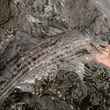
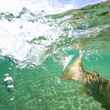
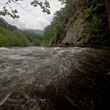

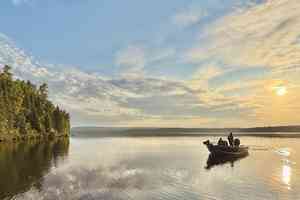


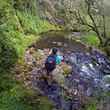

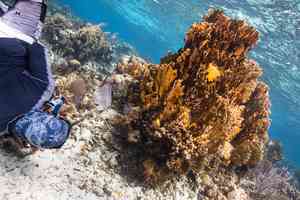

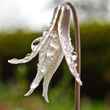
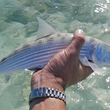



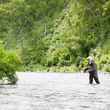

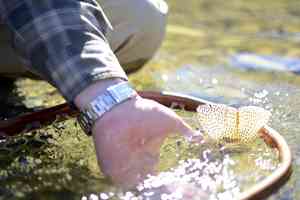
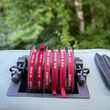


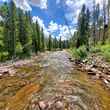
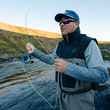

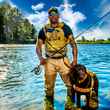
Comments